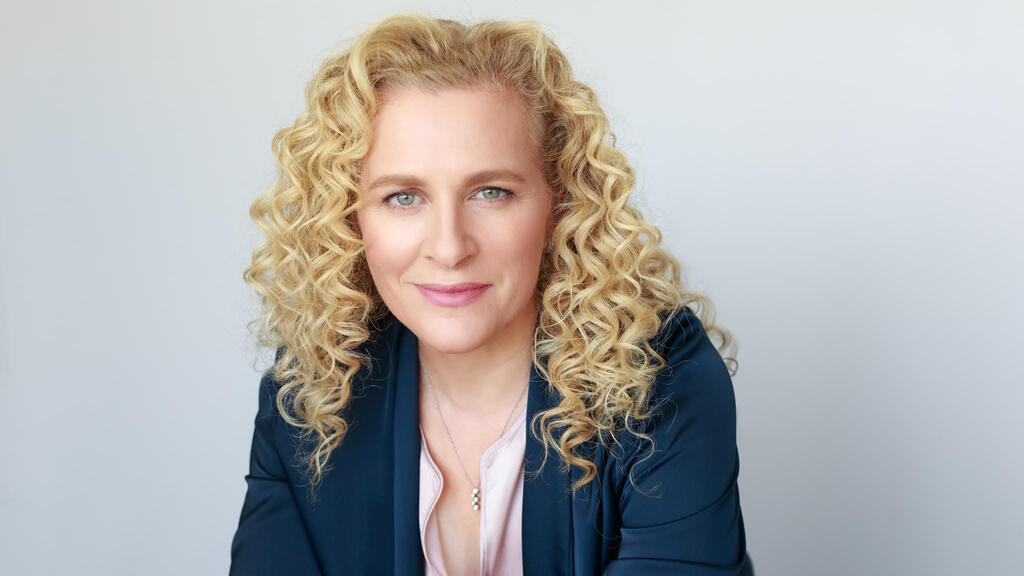
Israel’s new advocacy mission goes further than college campuses
The country is facing a war on its land and a battle on social media - but hopes remain high at a diplomatic level
By now you may have seen the images of London this weekend, where crowds gathered in the tens of thousands against Israel and in support of Palestinian people and their treatment in Gaza.
Among the messages of support included ‘calling for jihad specifically against Israel’ (in this instance, interpreted as the desire for Israel’s destruction), and protestors holding a blood-soaked doll while singing “Khayber Khayber ya yahud jaish Mohammed Sa Yaud", recognized by the ADL as an anti-Semitic chant calling for the killing of Jews. Finally, thousands were recorded singing the infamous “from the river to the sea” chant - which unsubtly implies the destruction of Israel and the death of its 9 million citizens.
2 View gallery


Israel flags are rare among the streets of London.
(Photo: Shutterstock/Noa Ratinsky)
Lest we give London all the credit for this sentiment. After all, that was only yesterday.
College campuses across America have reckoned with the idea that words may not, in fact, ‘be violence’ as was once assured. This month the Heads at Harvard have decided that calling Israel ‘entirely responsible’ for the murder, kidnap, and rape of its citizens is free speech. In Australia, chants appear in the streets from those looking to ‘gas the Jews’. Sydney Parliament swiftly apologized.
Despite millions of dollars poured into advocacy efforts and helping Israel with its online and public diplomacy, thousands of people among hundreds of institutions across dozens of countries feel emboldened to hate. They question the legitimacy of images showing Hamas’ crimes, forcing Israel into a perpetual state of PTSD as it feels obligated to post more evidence online. They may be a small minority, but they are a loud and passionate one that takes up the social media airwaves and blocks our streets.
Leaders of Western countries may condemn the actions of Hamas or show support for Israel, but it may appear that, as Douglas Murray puts it, ‘underneath that top-level things are very rotten indeed.’
“Whatever we did until now, we need to put aside,” explained Joanna Landau, co-author of ‘Ethical Tribing: Connecting the Next Generation to Israel in the Digital Era’. “We need to say wait: if to this day we were doing a ton of advocacy… yet here we are where we have to explain why 40 beheaded babies is a bad thing, then maybe we need to change our strategy.”
Statistically, emotional advocacy is more effective than knowledge-based advocacy. Studies have shown that factual advocacy yields a 52% positive response to Israel, and yet the ongoing hostage campaign raises sympathy for Israel to 81%. But for every poster of a kidnapped child, there are many who rip them down. It appears no amount of PR or advocacy can keep up with those determined to publicly condemn Israel and Jewry.
According to Landau, as long as the top-level leaders continue their support for Israel then advocacy efforts can be tweaked to appeal to those who are either pro-Israel or ‘undecided’ on the conflict. She cites a recent CNN poll showing overall American sympathies in the Middle Eastern conflict with support for Israel rising from 61% (from 55% in 2022) and support for Palestinians decreasing to 13% (from 26%) following the attacks.
“We are seeing that the victim narrative, which is so important for Israel to be able to win over public opinion in the world, together with the support of the free leaders of the world, is still in our favor.”
So what about these pesky calls for Jihad in the streets? “We need to see this in a much bigger context,” she continued. “Right now, what we are all doing is focusing on the negative. You can dive into specific audiences where you can see there is a problem, but we shouldn't let that give us the big picture. We shouldn't strategize just on that audience… October 7th is an absolute game-changer for what happened to Israel's image since the establishment of the state. Everything is going to change from this moment onward.”
She insists that two things happened: “One is that we became the victim and not the aggressor. And the second is that all the leaders of the free world backed Israel - including countries that never backed us.”
This may be true. World leaders unilaterally condemned the actions of Hamas on Israelis, but that is not a particularly difficult thing to do due to the nature of their crimes. But institutions like the United Nations couldn’t do it. A quarter of young Americans believe that the long-term solution to the conflict is that Israel be erased. President Biden is actually losing support among Democrats for his defense of the most liberal country in the Middle East. Overall trends may be rising in Israel’s support, but advocacy efforts online among the youth so far are failing.
“Right now, because we have the global leadership on our side, and because we depend on global leadership to win this war and save the hostages, we understand that public opinion doesn't win wars and public opinion doesn't extract hostages,” she explained. “If we know the objective is to not lose the support of the major politicians who are giving us real on-the-ground support, they're the ones we need to protect and the ones who need the armored vest. We need to put a bulletproof vest on the leadership - that’s what our job is as advocates.”
That can be done in a few ways, according to Landau. The first is that you call on those in Gen X (aged 43-58) to hold young people accountable for the words and actions they hold themselves to. Hedge fund manager Bill Ackman (aged 57) called for Harvard to name the students blaming Israel for the Hamas attacks so that he and other CEOs don't hire them by accident. Perhaps more should do the same.
The second way advocacy needs to change, and what those defending Israel need to realize, is that the loud “snotty-nosed campusgoer” belongs to the unwinnable minority of Israel’s critics. “You let it go, it’s a sunk cost,” Landau said. Emotional campaigns that present images of kidnapped children and holocaust survivors are statistically a narrative that works. And it has to be directed at those who are most likely to have their opinions changed.
“If we do traditional advocacy, if we do not understand what the objective is and who we should be targeting, we are not going to get there,” she concluded. “I want to bring this data and content so people see what is really going on and hopefully join this way of thinking.”
This renewed advocacy program for Israel in times of crisis can focus on two main areas: Gen X support and protection of governments around the world. And while it doesn’t solve the long-term problem of when these young people will graduate to positions of power themselves, the call today is more immediate.
“If you've got the heads of every single major British, American, or German company saying they’re donating money to people in Israel, then you've got a message which is more impactful on the global leaders than what is going on in the campuses right now,” she concluded. “I’m concerned about what it will be like in 20 years, but I can't worry about it right now because we are at war. It’s been 22 days.”














